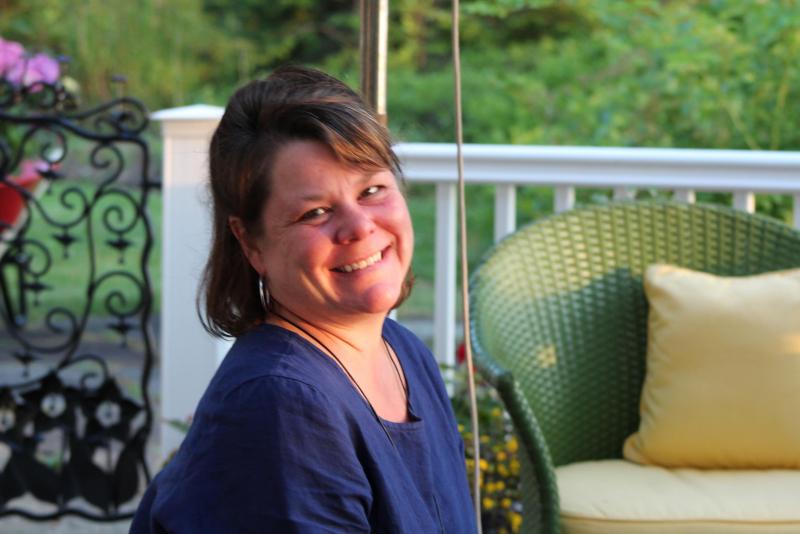Setting realistic goals for happiness
It’s the first week in January, and we are all inevitably beginning to feel the need to make resolutions, either out of guilt from our holiday binging, or putting off an issue we’ve been needing to address, but haven’t been ready to tackle. Most often, these issues revolve around health and wellness, finances and relationships. Typically, we choose a goal to target. We make a grand effort, but eventually become frustrated because we aren’t realistic about what we need to be happy. This ends in frustration, so we abandon it all together and then have feelings of failure.
New habits take time to build and take hold. It’s important to start with small steps. The first step is to change your mindset about resolutions, and instead, set intentions that make you happy. Think about the things you want to achieve, the life you want to live and ask yourself why those things are important to you. What will happen to you if you don’t change? Think about your values and what the most important aspects of your life are. Don’t just focus on a single behavior. When we have a clear motivation and vision, it’s easier to stick to a plan.
Next, write it all down. By physically writing your intentions down, it will help to solidify what it is you really want and it will be easier to break those things down into small action steps. Then, share it with somebody. When we share our intentions, we are more likely to follow through. If you are a person that likes to be held accountable, then you can also ask that person to be an accountability partner. Ask them to check in with you to see if you followed through on your plan.
Here are some examples of intentions that you might come up with:
I am going to spend more time with the people I love.
I am going to practice gratitude and learn to attract more abundance in my life. I am going to move toward eating a clean, plant-based diet.
I am going to develop a spiritual practice.
I am going to make “NOT to do, lists” and learn to say no to things.
I am going to find physical activities that I enjoy, and spend more time moving. I am going to read for pleasure.
None of these intentions are rigid, like, I am going to lose 20 pounds by my birthday. They leave room for inevitable ups and downs and allow you to add in action steps as you build your new healthy habits. They are also, all written in the positive. To be happy, and less stressed, it’s important to look at things in a positive way. I’m going to find physical activities that I enjoy, and spend more time moving, sure sounds better to me than, I will spend 45 minutes working out in the gym 5 days a week!
Once you have chosen your intentions, you can choose 1-3 action steps to implement 1 week at a time. For example, if your intention is moving toward a clean, plant-based diet, your action steps might look like this the first week:
Add in greens once a day.
Cook one vegetarian meal this week.
Identify and make a list of the processed foods I eat.
These are realistic and achievable things that you will feel good about doing right away!
The following week, you will choose some new action steps, perhaps building on the last ones. For example:
Add in greens once a day, everyday.
Learn to make a smoothie and do it at least once.
Choose some thing (or things) on my list of processed foods that I think I can reduce or eliminate.
Each morning set an intention for the day. Keep your action steps where you can see them. Set aside time each week, perhaps on a weekend when you are preparing for the week ahead, and reflect on what is new and good. What was challenging? Are you feeling stuck? What are triggers for you? What do you need to move forward? How are you feeling now? Then write your action steps for the next week. If you need to, you can use the same ones until you’re ready to move forward. Slow and steady wins the race, and you should feel proud about all the small accomplishments that you make. Reward yourself and share your progress with other people. The longer we work at building new habits, the more likely they will become routine forever!
Good luck! I wish you a happy and healthy new year! As always, please contact me with any questions you may have!
Julie Mitchell, Certified Integrative Nutrition Health Coach 207-315-0431 jmitchell.healthcoach@gmail.com
United States
About this blog:
Fresh ideas about wellness

Julie Mitchell
Certified Integrative Nutrition Health Coach
Julie has enjoyed teaching young children for nearly 30 years before choosing to move into a new career in Integrative Nutrition. Her interest was sparked when she observed the connection of the typical diet of highly processed, artificial foods and increasing chronic health issues, food sensitivities, behavior and learning issues. She also realized that some of her own health issues were stemming from stress and anxiety caused by the changing public school system. She now coaches individuals, couples and families and provides workshops and classes both in Integrative Nutrition and cooking.
Julie lives in Wiscasset with her husband, golden retriever and cat in an old farmhouse nestled on a hill overlooking the Sheepscot River. They have raised 5 grown children and enjoy art, music, cooking and traveling. Julie can be reached for questions or comments at: jmitchell.healthcoach@gmail.com
207-315-0431






















